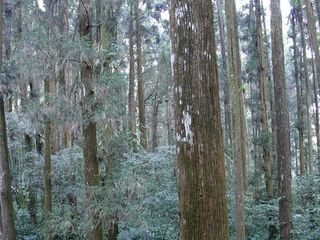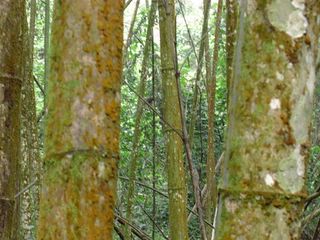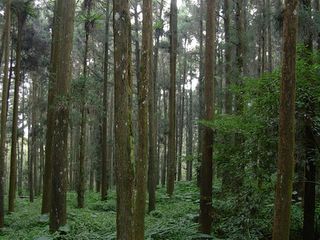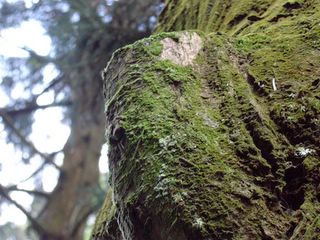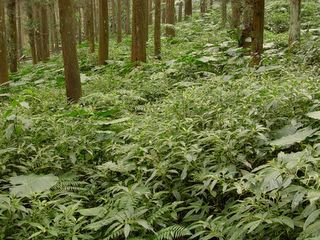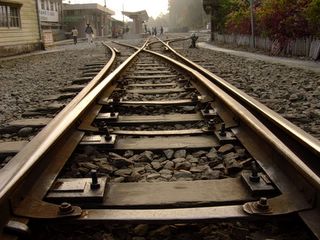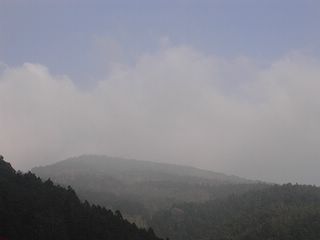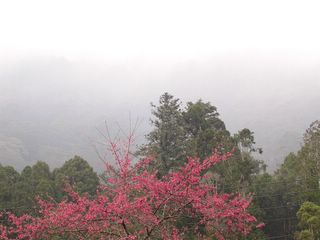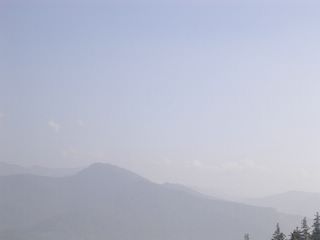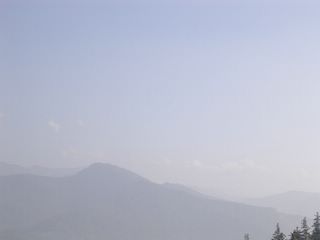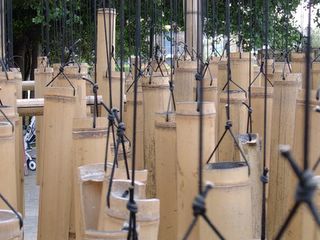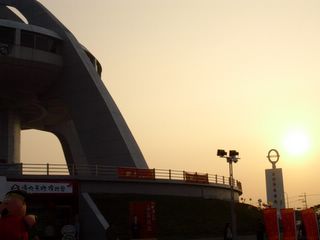An thought-provoking commentary in Liberty Times today, titled ‘Spirit of colonialism in Taiwan’ (translation mine). The author made the point that in order to demonstrate the prowess and supremacy of the colonising power, it has to change the name of the colonised subject. So the fact that New York is named after the English town of York is a reflection of the pride of the coloniser to create a ‘new and great’ land in the perceived barrenness and undeveloped territory.
And so it is here in Taiwan. Many cities and towns around the island has had its name changed, first by the Japanese, then by the Chinese Nationalists regime when it established itself on Taiwan. Names such as Takau (‘bamboo wood’ in the Pingpu aborigines language, but in the Japanese/Mandarin transliteration Takau 打狗 it literally means ‘hit dog’), were altered so that it sounds less ‘barbaric’ and more ‘civilised’ in the ears of the colonisers. Eventually Takau became the city known as Kaoshiung高雄. Today, in every city and town, you come across streets and roads named after cities and famous people in China. ‘Shanghai Road’, ‘Chonqing Road’, ‘Peiping Street’, Tianjin Street’ (all named after cities in China), ‘Zhong Zheng Road’ (after Chiang-Kai Shek) etc, etc. Again, a heritage from the Kuomintang period when ‘sinification’ was the word, and when anything related to China was awed and revered.
Was the Chinese Nationalist tyranny trying to recreate a ‘Chinese’ here in Taiwan environment to prolong its lost cause after its humiliating defeat and retreat? Shame that those names still mark almost every inch of Taiwan today. And who is complaining? No one it seems. Again, this underlines the tragedy of the Taiwanese people, in that having experienced decades of terror and indoctrination and being told of the myth that China is our home, few have the urge to resist, and less have the desire to change. This is a nation with an identity crisis. A couple of days ago, the Minister of Education visited a primary school and was disappointed to find that young children seem to know the geography and great rivers of China, but have no clue what the creek down the road is called.
Understanding and recognising this very piece of land Taiwanese people live on as their own is an important lesson that should not be neglected. And in the last few years of this government much has been down to emphasise Taiwan and its rich culture and history. But a few years is not yet enough to clean out the dirt of decades of myth-spreading and propaganda.
So imagine my disbelieve and indignation whenever I hear the opposition Chinese Nationalist Party call for such nonsense as “eventual unification” with China. Wake up people!
Saturday, February 11, 2006
Friday, February 10, 2006
Blog-aware
A nice piece about the blog community in the BBC today.
-----------------------------------------------
Bloggers: an army of irregulars
By Paul Reynolds
World Affairs correspondent, BBC News website
For many in the "mainstream media", as bloggers call us, weblogs are at best a nuisance and at worst dangerous.
They are seen as the rantings and ravings either of the unbalanced or the tedious.
My experience over the past few months has led me to an opposite conclusion.
I regard the blogosphere as a source of criticism that must be listened to and as a source of information that can be used.
The mainstream media (MSM in the jargon) has to sit up and take notice and develop some policies to meet this challenge.
Most big organisations, whether in news or in business, have no policy towards blogs.
They might, as the BBC has, develop a policy towards their own employees setting up such sites (no political opinions etc), but they have nobody monitoring the main blogs and have little idea how to respond to any criticism on them.
Alternative sources
First, here are a few examples of how the bloggers have, for me, become a useful source.
Only this week, they tracked down the origin of a fake cartoon which has been fuelling the furore over the characterisation of Muhammad in a Danish paper.
One of the pictures being circulated, a very fuzzy, grey photocopy, apparently showed the prophet Muhammad with the face of a pig.
It was quickly pointed out, by bloggers and others, that this was not one of the 12 Danish cartoons.
Nobody however knew the origin of this portrayal.
Then I received an e-mail from a reader passing on a link to a blog called neandernews.
And there it was.
The picture had nothing to do with the prophet. It was a photo of the winner of a "pig-squealing" competition held last summer in the French Pyrenees. It had first been published on the MSNBC website in August.
Another example came after Hurricane Katrina wrecked New Orleans.
Survivors of Hurricane Katrina used blogs to tell theirs stories There was a lot of discussion about who was to blame for the failure of the relief effort.
Then someone sent me a photo that had been circulating on blogs of yellow New Orleans school buses inundated in their parking lot.
They had clearly not been used for evacuation as they should have been according to the city and state plan.
This showed that the mayor, praised without much stint until then, had something to answer for.
It was part of the evidence upon which I concluded that blame should be shared at all levels of government.
I also benefited from the Daily Kos site when the issue of the use of white phosphorus by the US military in Iraq was under discussion.
The Pentagon initially denied its use as a weapon but the bloggers were able to link to an article from an embedded reporter who had watched marines using it as such and to a report in an army magazine about its use in Falluja.
The examples show the collective strength of blogs.
They have an army of what Sherlock Holmes called his "Baker Street Irregulars," that is an almost unlimited number of people around the world, many of them expert on the subject under discussion, scouring sources and sending information in to an easily accessible central site which can disseminate it instantly.
Power of blogs
The other role of the blogs is to criticise and attack.
And here they have shown their power in a way that ought to make big media organisations also take notice.
Bloggers have already helped to bring down or damage two very important media figures in the United States.
One was Dan Rather of CBS News, who came a cropper after a report on "60 Minutes Wednesday" in September 2004.
The report, compiled mainly by producers with Rather in the role of the front man, alleged that President Bush had been given special dispensations when he served as a pilot in the Texas Air National Guard.
The allegations were based on supposedly original documents.
However, the first crack in the case came when a blogger (from freerepublic.com according to a subsequent inquiry set up by CBS) questioned the typeface used in those documents.
It had not, he said, been available on typewriters at the time.
The whole story unravelled.
The other major scalp was the Chief News Executive at CNN, Eason Jordan.
He had made some remarks at a discussion in Davos in January 2005 about journalists being possibly targeted by US troops.
There was a semi-official blogger at the session (i.e. one invited by the organisers) and he set a ball rolling which gathered pace as other bloggers then accused Jordan of blaming the military unfairly.
It ended in Jordan's resignation. He was the victim of a "blogswarm".
Opinion varies as to whether this was justified or not.
Blog agendas
Of course, one has to remember that most blogs have political agendas. Many of them are on the right of the spectrum. But it is not that hard to discount the opinionating and pick out the facts.
The photo of the unused school buses in New Orleans came by way of a site called the USS Neverdock, so-called because it is always in action, I suppose.
It is run from Scotland by Marc Landers, who once served in US Naval Intelligence. He still fires with all guns.
"My motivation is to expose the bias in the BBC's reporting," he told me. "We are at war unlike any we've been in before and facing an enemy who wants one thing - to wipe out western civilization. The BBC, through its biased reporting, has sided with the enemy."
USS Neverdock is one of three main sites in the UK that monitor and usually attack the BBC from the right.
Another is called, simply enough, Biased BBC. One of its leading lights, Andrew Bowden, says that one of his major complaints is "the politically-correct institutional group-think (and sometimes plain ignorance) that comes across in a lot of the BBC's news and current affairs output."
He also opposes the compulsory licence fee that funds the BBC.
A third site, which specialises in detailed textual analysis of BBC and other media reports, is called The American Expatriate, who is Scott Callahan, a banker living in London.
"Since moving to Britain I've noticed that coverage of America is especially poor, not just in an opinionated way (eg America is an ignorant place, full of bible bashers etc) but even at times in a strictly factual sense. As an American living in Britain with a rather different take on Americans, American life and American politics than that of the media here, I thought that I was in a position to provide some corrective commentary," he said.
There are some leftwing sites, the main one perhaps being Medialens whose motto is "correcting for the distorted vision of the corporate media."
Run by journalists David Cromwell and David Edwards, Medialens has "media alerts" on the big issues of the day as it sees them. A recent one concerned the reporting of climate change.
It criticised, among others, The Independent [British newspaper]: "The Independent is feeling the heat from public criticism of its adverts pushing foreign travel, cars and endless consumerism."
In fairness, it also quoted an Independent editor who dismissed such critics as "a curmudgeonly lot of puritans, miseries, killjoys, Stalinists and glooms."
So, unlike some sites, it does seek debate.
I have taken to intervening in some of these sites if and when I am personally criticised and sometimes to defend the BBC in a general way.
Otherwise the comments go unanswered. I found that one rapidly develops a very thick skin and I can now understand how politicians can cope with criticism.
If the mainstream media does not respond, it will suffer. The same is even truer of businesses, whose products can be disastrously damaged by web-based attacks.
The principle is: the broader the attack, the less the effect.
It is when the criticism is detailed and pointed that it can hit home.
And with the growth of blogs, such detailed criticism is being made more and more often as the sniper fire from the bloggers targets individual stories and interpretations.
If the MSM does not respond, it will suffer. The same is even truer of businesses, whose products can be disastrously damaged by web-based attacks.
If the criticism is fair it must be answered, directly to those making it. Remote, computer-generated responses are counter-productive.
And mistakes must be quickly corrected. If the criticism is unfair, then the MSM has to know about it early on and develop defensive tactics.
Richard Sambrook, head of the BBC World Service and Global News Division (who runs a blog himself) accepts that the BBC needs to do more.
"The BBC should proactively engage with bloggers. This is a new issue for us. Some departments look at blogs, though haphazardly. But it pays dividends. The BBC is a huge impersonal organisation. It needs to come out from under its rock," he says.
As for using blogs as a source he says: "The key is careful attribution. It would be a big mistake for the MSM to try to match the blogs, but they can teach us lessons about openness and honesty. The MSM should concentrate on what it can do - explain, analyse and verify."
-----
UPDATE: 19 FEB 2006
Another article here, about new terms in the 'blogosphere'.
"A Web log was and is `a log of requests that comes into a server;' it's the domain of techie people and no fun to look at. But blog, though coined from `Web log,' is a word open to all sorts of linguistic play that has taken on the meaning of `a personal web page."
Jason Goldman, product manager for Google's blog-host Web site, Blogger
Good site here on the blog jargon!
And here's the site for the Blog Awards!
-----------------------------------------------
Bloggers: an army of irregulars
By Paul Reynolds
World Affairs correspondent, BBC News website
For many in the "mainstream media", as bloggers call us, weblogs are at best a nuisance and at worst dangerous.
They are seen as the rantings and ravings either of the unbalanced or the tedious.
My experience over the past few months has led me to an opposite conclusion.
I regard the blogosphere as a source of criticism that must be listened to and as a source of information that can be used.
The mainstream media (MSM in the jargon) has to sit up and take notice and develop some policies to meet this challenge.
Most big organisations, whether in news or in business, have no policy towards blogs.
They might, as the BBC has, develop a policy towards their own employees setting up such sites (no political opinions etc), but they have nobody monitoring the main blogs and have little idea how to respond to any criticism on them.
Alternative sources
First, here are a few examples of how the bloggers have, for me, become a useful source.
Only this week, they tracked down the origin of a fake cartoon which has been fuelling the furore over the characterisation of Muhammad in a Danish paper.
One of the pictures being circulated, a very fuzzy, grey photocopy, apparently showed the prophet Muhammad with the face of a pig.
It was quickly pointed out, by bloggers and others, that this was not one of the 12 Danish cartoons.
Nobody however knew the origin of this portrayal.
Then I received an e-mail from a reader passing on a link to a blog called neandernews.
And there it was.
The picture had nothing to do with the prophet. It was a photo of the winner of a "pig-squealing" competition held last summer in the French Pyrenees. It had first been published on the MSNBC website in August.
Another example came after Hurricane Katrina wrecked New Orleans.
Survivors of Hurricane Katrina used blogs to tell theirs stories There was a lot of discussion about who was to blame for the failure of the relief effort.
Then someone sent me a photo that had been circulating on blogs of yellow New Orleans school buses inundated in their parking lot.
They had clearly not been used for evacuation as they should have been according to the city and state plan.
This showed that the mayor, praised without much stint until then, had something to answer for.
It was part of the evidence upon which I concluded that blame should be shared at all levels of government.
I also benefited from the Daily Kos site when the issue of the use of white phosphorus by the US military in Iraq was under discussion.
The Pentagon initially denied its use as a weapon but the bloggers were able to link to an article from an embedded reporter who had watched marines using it as such and to a report in an army magazine about its use in Falluja.
The examples show the collective strength of blogs.
They have an army of what Sherlock Holmes called his "Baker Street Irregulars," that is an almost unlimited number of people around the world, many of them expert on the subject under discussion, scouring sources and sending information in to an easily accessible central site which can disseminate it instantly.
Power of blogs
The other role of the blogs is to criticise and attack.
And here they have shown their power in a way that ought to make big media organisations also take notice.
Bloggers have already helped to bring down or damage two very important media figures in the United States.
One was Dan Rather of CBS News, who came a cropper after a report on "60 Minutes Wednesday" in September 2004.
The report, compiled mainly by producers with Rather in the role of the front man, alleged that President Bush had been given special dispensations when he served as a pilot in the Texas Air National Guard.
The allegations were based on supposedly original documents.
However, the first crack in the case came when a blogger (from freerepublic.com according to a subsequent inquiry set up by CBS) questioned the typeface used in those documents.
It had not, he said, been available on typewriters at the time.
The whole story unravelled.
The other major scalp was the Chief News Executive at CNN, Eason Jordan.
He had made some remarks at a discussion in Davos in January 2005 about journalists being possibly targeted by US troops.
There was a semi-official blogger at the session (i.e. one invited by the organisers) and he set a ball rolling which gathered pace as other bloggers then accused Jordan of blaming the military unfairly.
It ended in Jordan's resignation. He was the victim of a "blogswarm".
Opinion varies as to whether this was justified or not.
Blog agendas
Of course, one has to remember that most blogs have political agendas. Many of them are on the right of the spectrum. But it is not that hard to discount the opinionating and pick out the facts.
The photo of the unused school buses in New Orleans came by way of a site called the USS Neverdock, so-called because it is always in action, I suppose.
It is run from Scotland by Marc Landers, who once served in US Naval Intelligence. He still fires with all guns.
"My motivation is to expose the bias in the BBC's reporting," he told me. "We are at war unlike any we've been in before and facing an enemy who wants one thing - to wipe out western civilization. The BBC, through its biased reporting, has sided with the enemy."
USS Neverdock is one of three main sites in the UK that monitor and usually attack the BBC from the right.
Another is called, simply enough, Biased BBC. One of its leading lights, Andrew Bowden, says that one of his major complaints is "the politically-correct institutional group-think (and sometimes plain ignorance) that comes across in a lot of the BBC's news and current affairs output."
He also opposes the compulsory licence fee that funds the BBC.
A third site, which specialises in detailed textual analysis of BBC and other media reports, is called The American Expatriate, who is Scott Callahan, a banker living in London.
"Since moving to Britain I've noticed that coverage of America is especially poor, not just in an opinionated way (eg America is an ignorant place, full of bible bashers etc) but even at times in a strictly factual sense. As an American living in Britain with a rather different take on Americans, American life and American politics than that of the media here, I thought that I was in a position to provide some corrective commentary," he said.
There are some leftwing sites, the main one perhaps being Medialens whose motto is "correcting for the distorted vision of the corporate media."
Run by journalists David Cromwell and David Edwards, Medialens has "media alerts" on the big issues of the day as it sees them. A recent one concerned the reporting of climate change.
It criticised, among others, The Independent [British newspaper]: "The Independent is feeling the heat from public criticism of its adverts pushing foreign travel, cars and endless consumerism."
In fairness, it also quoted an Independent editor who dismissed such critics as "a curmudgeonly lot of puritans, miseries, killjoys, Stalinists and glooms."
So, unlike some sites, it does seek debate.
I have taken to intervening in some of these sites if and when I am personally criticised and sometimes to defend the BBC in a general way.
Otherwise the comments go unanswered. I found that one rapidly develops a very thick skin and I can now understand how politicians can cope with criticism.
If the mainstream media does not respond, it will suffer. The same is even truer of businesses, whose products can be disastrously damaged by web-based attacks.
The principle is: the broader the attack, the less the effect.
It is when the criticism is detailed and pointed that it can hit home.
And with the growth of blogs, such detailed criticism is being made more and more often as the sniper fire from the bloggers targets individual stories and interpretations.
If the MSM does not respond, it will suffer. The same is even truer of businesses, whose products can be disastrously damaged by web-based attacks.
If the criticism is fair it must be answered, directly to those making it. Remote, computer-generated responses are counter-productive.
And mistakes must be quickly corrected. If the criticism is unfair, then the MSM has to know about it early on and develop defensive tactics.
Richard Sambrook, head of the BBC World Service and Global News Division (who runs a blog himself) accepts that the BBC needs to do more.
"The BBC should proactively engage with bloggers. This is a new issue for us. Some departments look at blogs, though haphazardly. But it pays dividends. The BBC is a huge impersonal organisation. It needs to come out from under its rock," he says.
As for using blogs as a source he says: "The key is careful attribution. It would be a big mistake for the MSM to try to match the blogs, but they can teach us lessons about openness and honesty. The MSM should concentrate on what it can do - explain, analyse and verify."
-----
UPDATE: 19 FEB 2006
Another article here, about new terms in the 'blogosphere'.
"A Web log was and is `a log of requests that comes into a server;' it's the domain of techie people and no fun to look at. But blog, though coined from `Web log,' is a word open to all sorts of linguistic play that has taken on the meaning of `a personal web page."
Jason Goldman, product manager for Google's blog-host Web site, Blogger
Good site here on the blog jargon!
And here's the site for the Blog Awards!
Thursday, February 09, 2006
In Chiayi
Cycling around Chiayi has become a must every time I am there. Though I may look unappealing with my basket and lady’s bike, and though old ladies and betel nut-chewing ‘uncles’ speed by on their 125cc motorcycles, I feel free. Cycling from place to place, from places of memories to places of new discoveries, I connect with the city I never really lived in, but somehow feel closely connected to.
It may be those childhood days, the long summer and winter vacations, that I spent there which gives this place much meaning in my life. Certainly, as someone attached to people and that ‘human connection’, the fact that most of my relatives on either side live in Chiayi makes me feel at home, and at ease. And in Chiayi, down in the more ‘Taiwanese’ and pro-independence south, unlike in Taipei, is where the local language Taiwanese is spoken and heard on a daily basis. It is here that you really get that feeling of how kind and warm Taiwanese people can be.
This time down happened to coincide with the twentieth memorial day of my grandpa’s (dad’s side) death. I have no real memory of my grandpa, since he passed away when I was just two. I hear he was a hard-working man, who repaired and sold bikes, and managed to raise six children, out of whom all except one went to university. The house they lived, which was also his workshop, was no more than 10 square metre. He spoke Taiwanese and Japanese, and managed to learn bits and pieces of Mandarin when the Chinese regime arrived after the War. He loved to gamble too, and used to play ‘sibala’ (dice rolling) at the temple and sometimes won sausages to bring home to add to the meager food they had. But he was also an angry man, and often threw fits of temper and scolded everyone…or so I heard. He worked literally to his death. One night he complained of stomach aches, and when he reached the hospital the doctors discovered his liver had almost failed. Through eating rough and a life of toil to see ends meet, grandpa had neglected his own health and wellbeing for the sake of his family. The conditions grandpa had are hereditary.
I do have a fond memory of my grandma. A really kind, compassionate lady, who could only speak Taiwanese, but could not write. She had a clear memory, and still fretted about the well-being of her children (especially about my youngest bachelor uncle) until the moment she passed away. She often spoke to me and told me ‘adult’ things as if I were the only other person who would listen to her. And perhaps at times she felt I was really the only one who spent time with her, as my uncles and aunts were all busy. I remember sitting at my grandma’s place as a child, and whenever someone approached, she would greet the passer-by with a friendly smile and beckon him/her inside for tea and a sit. And I remember those moments when, me being not older than ten or so, I took grandma by the hand and lead her across the busy street for her daily check-up at the hospital. She walked slow, and wobbled from side to side, but I patiently lead her and we withstood the impatient roar of engines on the main road. In her final years, everything that could go wrong with her health went wrong; kidney failure, heart disease, bone fracture, memory loss, liver disease… the last time I saw her I waved goodbye, thinking I would see her again the next summer.
Today, grandpa and grandma’s black and white portraits hang on the top floor of the newly constructed five-storey apartment. It’s the same piece of land where many summers ago I sat together with grandma in that dark and poorly furnished bicycle workshop-cum-house. But the worktools, and the people most dear have since disappeared. The first floor has been rented to a lottery shop. Where once customers came with their broken bikes, today customers flock to the same place with dreams of striking it rich. Only my bachelor uncle lives there now, whenever he goes back to Chiayi from his work at the fertiliser plant.
The usual meet and greet at a relative's plaace, a few episodes of chatting, photo album viewing, and connecting. More relatives joined in the get together, as we sang the night away in our own karaoke booth. Songs, old and new, Mandarin and Taiwanese, oldies and goodies, brought back memories, emotions, and brought us back togetherl.. Though, at timees the singing was crude and out of tune (and according to someone I should 'let go' when I sing), karaoke is probably the most enjoyable way to get together and cherish those few momentts of liberation and extasy.
For grandpa’s memorial more relatives joined in. The usual fruits, sweets, and drinks offerings were laid out on a table, while everyone held incense and stood in front of the ancestral plaque. People prayed for this and that wish to be fulfilled, prayed that the deceased would look after the descendents…but it seemed like a selfish thing to do. Deep inside, I ‘spoke’ to grandpa. Though I did not know him well, I wished him well, and thanked him for providing this big family with the building blocks on which it branched out further. The saying goes, “when eat fruit, worship the tree trunk”(Taiwanese: 吃水果,拜樹頭). Every success and prosperity today comes from the toil and sweat of so many before us. And this I remember.
It’s been a while since the whole extended family on dad’s side was last united at one table. And it happened this time, more or less, when we had dinner that evening. I looked around the table…some have grown to resemble the portraits of my grandparents on the wall; some have grown tufts of gray hair and wrinkles; others have become almost as tall as I am; and some have become married. Everyone in the past few years, since the time I left this country, changed so much, and it was a special feeling that we were sitting together, eating together. Though conversation was restricted to small-talk and asking questions asked so many times before, the fact that we could be together was something.
Later that night, another one of Taiwanese local culture of worship and celebrations was ushered with firecrackers and the blaring of temple instruments. On the eighth day of the first lunar month, the Lord of Heaven, the highest deity of all who oversees heaven and earth and all that goes in and on between them, celebrates his birthday. The tradition is to make the usual offerings of fruits, foods, and drinks at 11pm. Incense sticks are burnt three times; each time when the previous set of incense reaches half their original length, the next set is lit and fixed on a cup containing rice grains. Then, after the third round, paper money is offered by burning them. Altogether the ceremony takes about two hours to complete.
While performing the rituals, the old auntie from next door came around and we chatted a bit. She was surprised that I, someone who practically grew up abroad, am still so much into all these traditions. It’s true, really. Many youngsters around my age don’t know when and how to perform the rituals of worship to the ancestors and deities. More and more, people find it a hassle and simple superstition, and some stop practicing these rituals altogether. Somehow, I’m just fascinated by these rituals and their origins. It’s not really the performance of the rituals and the hope of a better life, more prosperity etc, etc that interests me. I don’t think terrible things will befall me if I stop performing the worships. And I don’t see it as a religious ceremonies, which requires blind faith and observance, either. It’s the fact that this is part of my heritage, my culture and part of who I am that makes me feel it’s necessary to do all these things.
In the midst of all the busy to-and-fro, meetings and greetings, there was time for a little touring. Together with a cousin and his wife, we went to Fencihu, a place halfway up the Alishan recreational area. The area is probably one of the most well-known in Taiwan. As it is often said, once you’ve seen the sea of clouds, the ancient forests, the abundant wildlife and impressive mountain ranges of the area, you’ll realise why Taiwan is also called “Beautiful Island”.
It was years ago when I last went up Alishan. Despite the cold and thin air, the sunrise over a vast expanse of clouds with mountains tops protruding like islands here and there was simply stunning. The hikes climbs through dense, unspoiled forest, standing in the shadow of green giants and surrounded by a carpet of green midget shrubs and plants, were exciting and refreshing. This time, there were glimpses of blossoming plum flowers, mist-covered mountain ridges and dense green forests, but because of lack of time, we had to be content walking around the narrow streets of the old town.
Shops, souvenirs, foods and vendors beckoning you to visit and to buy seem to have become the attractions at every touristy attraction in this country. Sort of disappointing and kills the spirit of a relaxing holiday in the open countryside. And then there are those obnoxious and loud tour groups, the eye-sore of plastic bottles and bags, cans and cigarette buds which lie around everywhere. Visitors seem to know what souvenir and scenic pictures to take home with them, but somehow forget that the rubbish they create should also be taken away as well. That urge to start picking up what others have left behind surfaced time and again.
No matter. Like always, and like wherever I go, I take with me impressions and moments which I hope may stay with me always. It’s not how far I’ve traveled or what spectacular experiences I’ve come across…it’s the stories, the people, and the life behind every step that makes each trip worth visiting and revisiting.
It may be those childhood days, the long summer and winter vacations, that I spent there which gives this place much meaning in my life. Certainly, as someone attached to people and that ‘human connection’, the fact that most of my relatives on either side live in Chiayi makes me feel at home, and at ease. And in Chiayi, down in the more ‘Taiwanese’ and pro-independence south, unlike in Taipei, is where the local language Taiwanese is spoken and heard on a daily basis. It is here that you really get that feeling of how kind and warm Taiwanese people can be.
This time down happened to coincide with the twentieth memorial day of my grandpa’s (dad’s side) death. I have no real memory of my grandpa, since he passed away when I was just two. I hear he was a hard-working man, who repaired and sold bikes, and managed to raise six children, out of whom all except one went to university. The house they lived, which was also his workshop, was no more than 10 square metre. He spoke Taiwanese and Japanese, and managed to learn bits and pieces of Mandarin when the Chinese regime arrived after the War. He loved to gamble too, and used to play ‘sibala’ (dice rolling) at the temple and sometimes won sausages to bring home to add to the meager food they had. But he was also an angry man, and often threw fits of temper and scolded everyone…or so I heard. He worked literally to his death. One night he complained of stomach aches, and when he reached the hospital the doctors discovered his liver had almost failed. Through eating rough and a life of toil to see ends meet, grandpa had neglected his own health and wellbeing for the sake of his family. The conditions grandpa had are hereditary.
I do have a fond memory of my grandma. A really kind, compassionate lady, who could only speak Taiwanese, but could not write. She had a clear memory, and still fretted about the well-being of her children (especially about my youngest bachelor uncle) until the moment she passed away. She often spoke to me and told me ‘adult’ things as if I were the only other person who would listen to her. And perhaps at times she felt I was really the only one who spent time with her, as my uncles and aunts were all busy. I remember sitting at my grandma’s place as a child, and whenever someone approached, she would greet the passer-by with a friendly smile and beckon him/her inside for tea and a sit. And I remember those moments when, me being not older than ten or so, I took grandma by the hand and lead her across the busy street for her daily check-up at the hospital. She walked slow, and wobbled from side to side, but I patiently lead her and we withstood the impatient roar of engines on the main road. In her final years, everything that could go wrong with her health went wrong; kidney failure, heart disease, bone fracture, memory loss, liver disease… the last time I saw her I waved goodbye, thinking I would see her again the next summer.
Today, grandpa and grandma’s black and white portraits hang on the top floor of the newly constructed five-storey apartment. It’s the same piece of land where many summers ago I sat together with grandma in that dark and poorly furnished bicycle workshop-cum-house. But the worktools, and the people most dear have since disappeared. The first floor has been rented to a lottery shop. Where once customers came with their broken bikes, today customers flock to the same place with dreams of striking it rich. Only my bachelor uncle lives there now, whenever he goes back to Chiayi from his work at the fertiliser plant.
The usual meet and greet at a relative's plaace, a few episodes of chatting, photo album viewing, and connecting. More relatives joined in the get together, as we sang the night away in our own karaoke booth. Songs, old and new, Mandarin and Taiwanese, oldies and goodies, brought back memories, emotions, and brought us back togetherl.. Though, at timees the singing was crude and out of tune (and according to someone I should 'let go' when I sing), karaoke is probably the most enjoyable way to get together and cherish those few momentts of liberation and extasy.
For grandpa’s memorial more relatives joined in. The usual fruits, sweets, and drinks offerings were laid out on a table, while everyone held incense and stood in front of the ancestral plaque. People prayed for this and that wish to be fulfilled, prayed that the deceased would look after the descendents…but it seemed like a selfish thing to do. Deep inside, I ‘spoke’ to grandpa. Though I did not know him well, I wished him well, and thanked him for providing this big family with the building blocks on which it branched out further. The saying goes, “when eat fruit, worship the tree trunk”(Taiwanese: 吃水果,拜樹頭). Every success and prosperity today comes from the toil and sweat of so many before us. And this I remember.
It’s been a while since the whole extended family on dad’s side was last united at one table. And it happened this time, more or less, when we had dinner that evening. I looked around the table…some have grown to resemble the portraits of my grandparents on the wall; some have grown tufts of gray hair and wrinkles; others have become almost as tall as I am; and some have become married. Everyone in the past few years, since the time I left this country, changed so much, and it was a special feeling that we were sitting together, eating together. Though conversation was restricted to small-talk and asking questions asked so many times before, the fact that we could be together was something.
Later that night, another one of Taiwanese local culture of worship and celebrations was ushered with firecrackers and the blaring of temple instruments. On the eighth day of the first lunar month, the Lord of Heaven, the highest deity of all who oversees heaven and earth and all that goes in and on between them, celebrates his birthday. The tradition is to make the usual offerings of fruits, foods, and drinks at 11pm. Incense sticks are burnt three times; each time when the previous set of incense reaches half their original length, the next set is lit and fixed on a cup containing rice grains. Then, after the third round, paper money is offered by burning them. Altogether the ceremony takes about two hours to complete.
While performing the rituals, the old auntie from next door came around and we chatted a bit. She was surprised that I, someone who practically grew up abroad, am still so much into all these traditions. It’s true, really. Many youngsters around my age don’t know when and how to perform the rituals of worship to the ancestors and deities. More and more, people find it a hassle and simple superstition, and some stop practicing these rituals altogether. Somehow, I’m just fascinated by these rituals and their origins. It’s not really the performance of the rituals and the hope of a better life, more prosperity etc, etc that interests me. I don’t think terrible things will befall me if I stop performing the worships. And I don’t see it as a religious ceremonies, which requires blind faith and observance, either. It’s the fact that this is part of my heritage, my culture and part of who I am that makes me feel it’s necessary to do all these things.
In the midst of all the busy to-and-fro, meetings and greetings, there was time for a little touring. Together with a cousin and his wife, we went to Fencihu, a place halfway up the Alishan recreational area. The area is probably one of the most well-known in Taiwan. As it is often said, once you’ve seen the sea of clouds, the ancient forests, the abundant wildlife and impressive mountain ranges of the area, you’ll realise why Taiwan is also called “Beautiful Island”.
It was years ago when I last went up Alishan. Despite the cold and thin air, the sunrise over a vast expanse of clouds with mountains tops protruding like islands here and there was simply stunning. The hikes climbs through dense, unspoiled forest, standing in the shadow of green giants and surrounded by a carpet of green midget shrubs and plants, were exciting and refreshing. This time, there were glimpses of blossoming plum flowers, mist-covered mountain ridges and dense green forests, but because of lack of time, we had to be content walking around the narrow streets of the old town.
Shops, souvenirs, foods and vendors beckoning you to visit and to buy seem to have become the attractions at every touristy attraction in this country. Sort of disappointing and kills the spirit of a relaxing holiday in the open countryside. And then there are those obnoxious and loud tour groups, the eye-sore of plastic bottles and bags, cans and cigarette buds which lie around everywhere. Visitors seem to know what souvenir and scenic pictures to take home with them, but somehow forget that the rubbish they create should also be taken away as well. That urge to start picking up what others have left behind surfaced time and again.
No matter. Like always, and like wherever I go, I take with me impressions and moments which I hope may stay with me always. It’s not how far I’ve traveled or what spectacular experiences I’ve come across…it’s the stories, the people, and the life behind every step that makes each trip worth visiting and revisiting.
Wednesday, February 08, 2006
Nr 23: one of the first locomotives on the Alishan Mountain Railway. The railway was originally built in the 1900s by the Japanese to transport lumber, but eventually evolved into a scenic tourist route. It is one of three mountains railways in the world. In a matter of hours, the route travels through the tropical zone to the sub-tropical, to the temperate, and eventually ends up in frigid climate zone.


Subscribe to:
Posts (Atom)
